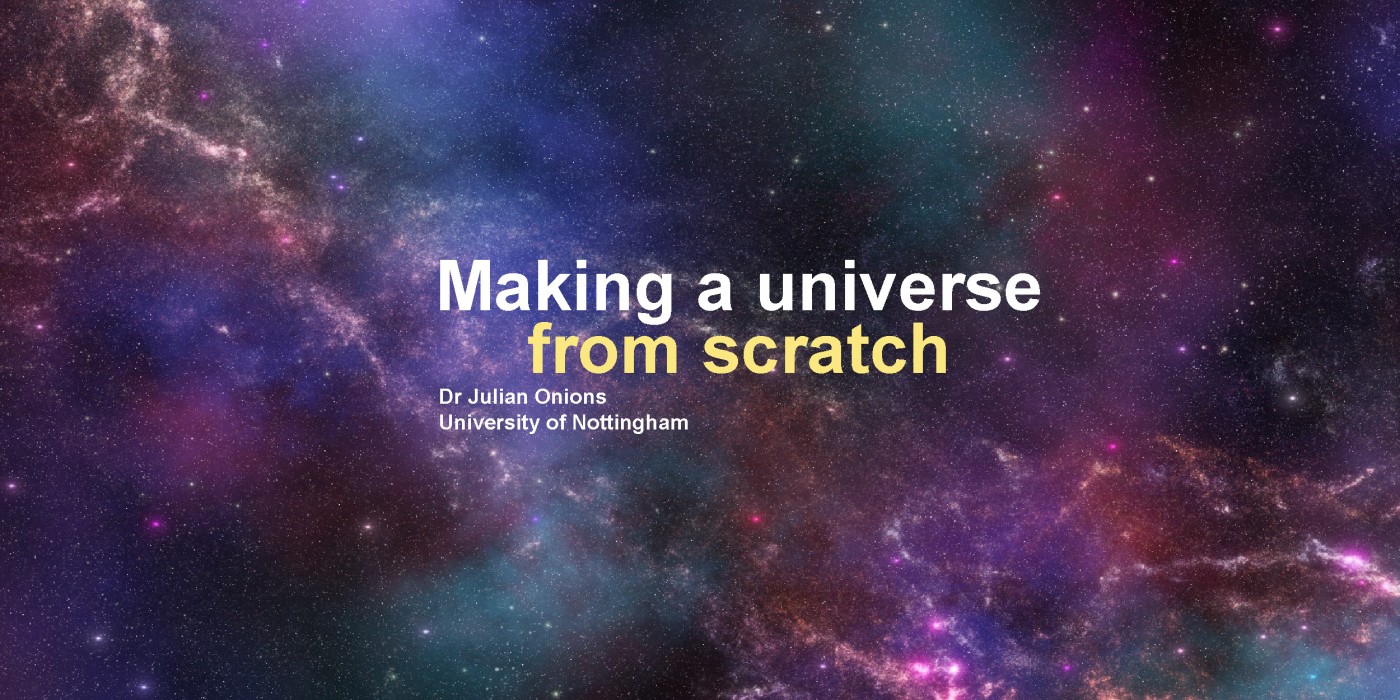SAS Lecture: Making a universe from scratch
About this event :

Astronomy is mostly a visual and non-experimental science.
We can only look at what is out there but can’t brings stars and galaxies into the lab.
However we can build them inside computers and attempt to simulate them.
In Julian’s talk, we will see how simulations can show us how the universe evolves and what we can do with them, and what areas we are still struggling to make models of.
Talk via Zoom at Wetlands Centre
This walk will be held via Zoom but shown at the Washington Wetlands Centre (Discovery Room).
Please show you support to our speaker and the Society if you can on the night.
Hopefully we’ll see you all at the Washington Wetlands Centre (Discovery Room) , a Raffle & Refreshments as usual.
Zoom Access
The talk will be over Zoom and it’s recommended to attend in person at the Washington Wetlands Centre to get the best to get the best experience from the talk & Q&A..
But if you can’t make it in person and you interested in viewing and participating (i.e. Q&A) in this month’s talk, please send an email request to zoom-meetings@sunderlandastro.com
Stating your:
- Name
- And if you are a current/potential SAS member (i.e. Single, Family, Concession, etc) or you have a just a general interest in the lecture(s)
We will be then send you details on How to join the Zoom video meeting for the SAS talk.
The requisites will be:
- Meeting ID – 375 091 0450
- Password Begins with “C*****”
- which are the usual zoom password details
Talk will be broadcast via Zoom (providing no technical and/or WIFI difficulties)
When Who Where
- Date: Sunday 17th March 2023,
- Time: 7pm.
- Speaker: Dr Julia Onions
- Venue: Given at the Washington Wetlands Centre (in the Discovery Room) and via Zoom (usual Zoom joining instructions), but please do try an attend in person if possible to show support for YOUR Society and our speaker Dr Julian Onions.
Our speaker
Dr Julian Onions. Post Doctoral Researcher
Julian works with computer simulations of large fractions of the universe to understand trends in galaxy formation and evolution.
Investigating the tools that help us form and analyse such simulations such as halo finders, tree builders and semi-analytic models.
He also does a number of outreach activities, giving talks to astronomy societies and other interested groups such as rotary and U3A, as well as working with schools and scouts/guide groups. He also helps with the teaching of undergraduates in some of the astronomy courses.
Google Map
Your host : Martin Kennedy
